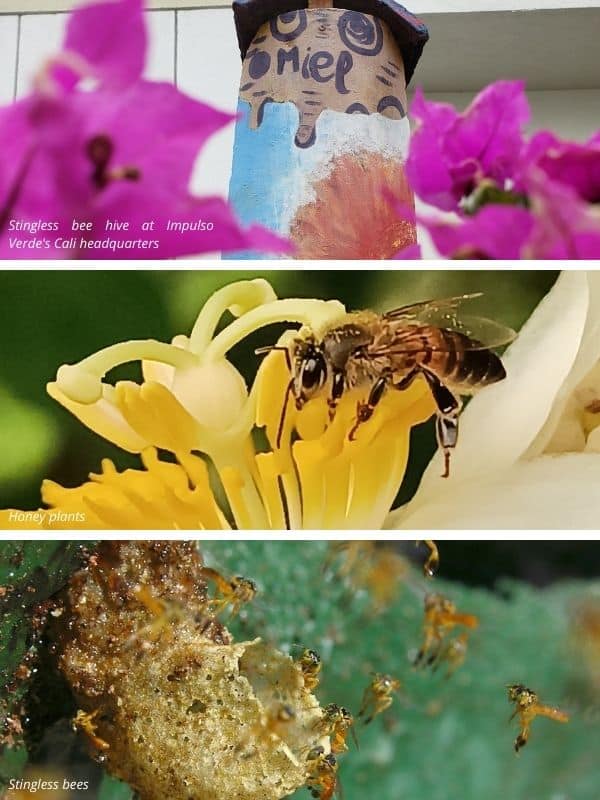At Impulso Verde, we are helping to raise awareness about the protection of pollinators and the importance of honey plants.
Stingless beekeeping, also known as meliponiculture, is a practice known for many centuries by Native Americans. It is sustainable and environmentally friendly.
Stingless bees are important pollinators of endogenous plants and are raised for honey production. Honey is used in the pharmacopoeia of indigenous and peasant communities, for its therapeutic virtues recognized to treat certain dermatological and ophthalmological diseases.
Melliferous plants are essential for maintaining biodiversity and are visited by pollinators, which is vital for the production of fruits, vegetables, seeds and flowers. These plants contribute to ecosystems as pioneer and restorative plants, strengthening the organic layer of the soil.
The preservation and breeding of stingless bees is of vital importance to the ecosystem. However, the lack of knowledge about bees, the use of pesticides, deforestation or monocultures are causing the progressive disappearance of pollinators in general and bees in particular.
To contribute to the conservation of pollinators, Impulse Verde is carrying out:


